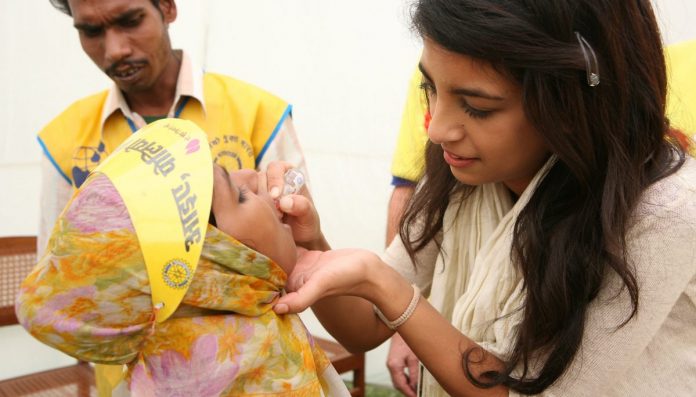
- 1Share
New Delhi: Iron tablets and polio drops administered under government programmes may soon bear the medicine’s name and expiry date in Hindi and other Indian languages, besides English.
The Drugs Technical Advisory Board (DTAB), the country’s highest statutory decision-making body on technical matters related to medicines, took a decision to this effect at a meeting on 2 April.
According to the minutes of the meeting, accessed by ThePrint, the DTAB has suggested that “the government’s procurement agencies should take necessary steps in [the] tendering process to include [the] drug name and expiry date in Hindi or in the regional languages along with English on the label of iron tablets and polio drops in the government programmes”.
The board also said that the government may issue an advisory in this regard, according to the minutes.
The move is meant to ensure that those seeking drugs under government schemes have access to all the requisite information about them. For instance, labels of iron tablets or polio-drop vials meant for children in Maharashtra would bear the drug’s name and expiry date in English and Marathi, or both.
The suggestion specifically focuses on iron tablets and polio drops because they are the medicines most commonly administered to children at government health centres.
According to a Union Health Ministry official, who cited the model code of conduct to request anonymity, if the rollout is successful and the feedback encouraging, the proposal could be extended to other medicines.
Labeling tweak not ‘mandatory’
The proposal to amend labeling requirements for iron tablets and polio drops given out under government schemes was first taken up by the government last year, with the initial discussion focusing on stating the brand name and expiry date in Hindi.
The government constituted a “sub-committee” under the chairmanship of Dr R.N. Tandon, the honorary secretary general of the Indian Medical Association, to examine the matter and give its recommendations.
According to the minutes of the 2 April meeting, “The sub-committee had submitted its recommendations that name of medicines shall be printed both in English and Hindi for open market, whereas for medicines procured by any [state] government, agencies are at liberty to ask for regional language on label of drug products along with English”.
While allowing the panel’s recommendation to tweak the tendering process to seek labels in Hindi and regional languages, the DTAB refused the suggestion that additional languages be made mandatory for the drugs in the open market.
Instead, the board has recommended that “the sub-committee may co-opt representatives from pharmaceutical manufacturing industry for further deliberations” on the issue.
Drug makers not happy
The proposal seems to have left drug manufacturers in a quandary over fears that more languages on drug labels would make the process “confusing” for them.
“The list of regional languages is very long and if we miss any language, it will hurt the sentiments of people, or state governments would ask why we are not promoting a certain language,” said a senior official of a drug manufacturer, requesting anonymity.
“It will be very confusing for us to get into it. So many things are already printed on the pack… [with the addition of more languages], the label will become unclear and cluttered,” the official added.
Similar proposal mulled for chips, soft drinks
A similar move was planned for fast-moving consumer goods [FMCG] in 2018 by Union Consumer Affairs Minister Ram Vilas Paswan, who had urged the industry to label goods such as chips, toothpastes, shampoos, and soft drinks in Hindi and other regional languages as well.
“In developed countries like China and Japan, labels are printed in their own languages,” he had said, “However, in India, companies continue to use only English for labeling. Labeling should also be done in Hindi and other regional languages, besides English.”
However, the move hasn’t yet kicked in.
Check out My543, our comprehensive report card of all Lok Sabha MPs.
- 1Share